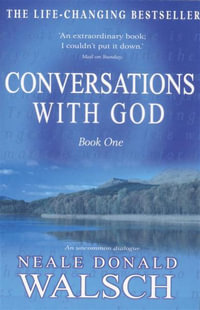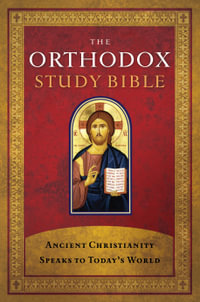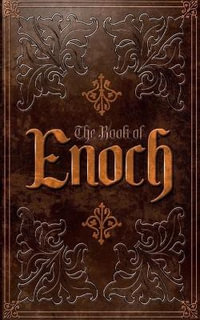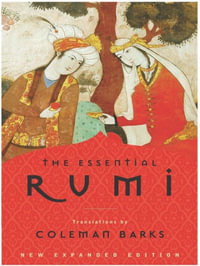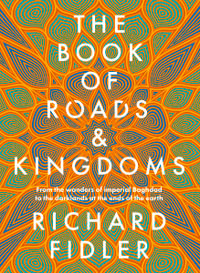This book is an attempt to explain how, in the face of increasing religious authoritarianism in medieval Islamic civilization, some Muslim thinkers continued to pursue essentially humanistic, rational, and scientific discourses in the quest for knowledge, meaning, and values. Drawing on a wide range of Islamic writings, from love poetry to history to philosophical theology, Goodman shows that medieval Islam was open to individualism, occasional secularism, skepticism, even liberalism.
Industry Reviews
"The range and depth of this well documented, richly detailed, and elegantly written survey of human centered, even secular dimensions of classical Islamic civilization--its poetry, music, wine, war, love, play, hunting, dress/display, ethics, theology, epistemology, metaphysics, and grand tradition of Arabic universal history-are unparalleled. Islamic Humanism fills a serious gap in the literature and provides a rare opportunity to learn about significant
dimensions of the Muslim heritage that deserve to be appreciated in our era of sectarian Muslim extremism and clashing civilizations. Although the expression 'Islamic humanism' may strike some as an
oxymoron in today's world, Lenn E. Goodman's remarkable book is fascinating and inspiring, neither apologetic nor meddlesome."--Frederick Mathewson Denny, Professor, Islamic Studies and the History of Religions, Department of Religious Studies, University of Colorado at Boulder
"The work underscores the need to reread the religion of Islam and its civilization without succumbing to the events of the recent past, especially in the post-9/11, that have captured only partial images of those who call themselves Muslims. Goodman's life-long endeavor to understand the profound encounter between Muslim philosophers and the Greek heritage, and its implications for the unfolding of Islamic modernity is enlightening, intriguing and highly
accessible. The book captures Muslim wisdom and humanism that is meant to be read and shared with intelligent Muslim and non-Muslim readership. The inspiring message that comes across the volume is its
challenge to Muslims today to rise above ideology in order to critically appropriate their great heritage with openness and confidence--the Islam that is 'tolerant, pluralist, cosmopolitan without triumphalism and spiritual without repression.'"--Abdulaziz Sachedina, author of The Islamic Roots of Democratic Pluralism
"Lenn Goodman has undertaken a tour de force in Islamic Humanism and successfully accomplishes his goals. He demonstrates with masterly skill, entertaining prose and with an eye for detail, the complex cosmopolitan world of classical and medieval Islam: a world that Jews, Christians, Muslims and people of many faiths inhabited. It was a not a perfect world, as Goodman tells us, but it is nonetheless a world that by today's standards would make us
nostalgic. At the same time it also gives us hope: for if Muslims in the past did not only imagine a great civilization but actually created one, then what prevents them from imagining a better world for themselves
and others in the twenty first century? Imagination, Goodman shows, is one element of that story." --Ebrahim Moosa, Duke University
"A compelling reading for Muslims and non-Muslims, specialists, and general readers alike. A stimulating guide to the thought of Muslim writers and thinkers who articulated sympathetic and critical approaches to their tradition."--Choice
"This study is compelling reading for Muslims and non-Muslims, specialists, and general readers alike. .Goodman is a stimulating guide to the thought of Muslim writers and thinkers who articulated sympathetic and critical approaches to their tradition."-Choice
"Lenn Goodman has undertaken a tour de force in Islamic Humanism and successfully accomplishes his goals. He demonstrates with masterly skill, entertaining prose and with an eye for detail, the complex cosmopolitan world of classical and medieval Islam: a world that Jews, Christians, Muslims and people of many faiths inhabited. It was a not a perfect world, as Goodman tells us, but it is nonetheless a world that by today's standards would make us
nostalgic. At the same time it also gives us hope: for if Muslims in the past did not only imagine a great civilization but actually created one, then what prevents them from imagining a better world for themselves
and others in the twenty first century? Imagination, Goodman shows, is one element of that story." --Ebrahim Moosa, Duke University
"The work underscores the need to reread the religion of Islam and its civilization without succumbing to the events of the recent past, especially in the post-9/11, that have captured only partial images of those who call themselves Muslims. Goodman's life-long endeavor to understand the profound encounter between Muslim philosophers and the Greek heritage, and its implications for the unfolding of Islamic modernity is enlightening, intriguing and highly
accessible. The book captures Muslim wisdom and humanism that is meant to be read and shared with intelligent Muslim and non-Muslim readership. The inspiring message that comes across the volume is its
challenge to Muslims today to rise above ideology in order to critically appropriate their great heritage with openness and confidence--the Islam that is 'tolerant, pluralist, cosmopolitan without triumphalism and spiritual without repression.'"--Abdulaziz Sachedina, author of The Islamic Roots of Democratic Pluralism
"The range and depth of this well documented, richly detailed, and elegantly written survey of human centered, even secular dimensions of classical Islamic civilization--its poetry, music, wine, war, love, play, hunting, dress/display, ethics, theology, epistemology, metaphysics, and grand tradition of Arabic universal history-are unparalleled. Islamic Humanism fills a serious gap in the literature and provides a rare opportunity to learn about significant
dimensions of the Muslim heritage that deserve to be appreciated in our era of sectarian Muslim extremism and clashing civilizations. Although the expression 'Islamic humanism' may strike some as an
oxymoron in today's world, Lenn E. Goodman's remarkable book is fascinating and inspiring, neither apologetic nor meddlesome."--Frederick Mathewson Denny, Professor, Islamic Studies and the History of Religions, Department of Religious Studies, University of Colorado at Boulder
"Goodman's approach and perspective throughout this book are inspiring and thought-provoking."Ali Caksu, Faith University


